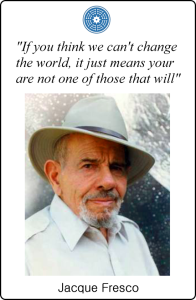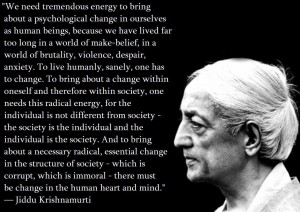「烏托邦」 utopia ,
從來都不是「應許之地」promised land,
而是人類精神文明中為了避免地獄出現在世上,
終於明白必須鼓起勇氣,面對現實,
不再以「永生」或者「來生」作為逃避的藉口,
而自己致力塑造「烏托邦」這個理想的目標。
We realize and must realize that
Heaven and Nirvana are in our own hands!
For both the kingdom of God and
that of Lucifer are within the human minds.
If people are contented to be slaves,
a civilization soon becomes an “evilization”.
( Jason Ling )
一旦袖手旁觀,文明社會隨時有可能變成不文明社會,
尤其是在一個極權和資本主義結合而又鄙視文明的社會內,
「我 ego」重視 野心 ambition,擁抱 自私 selfishness,
擁抱 貪婪 greed/covetousness,致力於度橋,重視博弈。
一旦一群重視「我 ego」的同道中人團結在一起,
他們甚至會發動戰爭。
「心靈 soul」重視 理想 vision/ideal/dream,
討厭肢體暴力,更加討厭制度暴力,
絕對不會好像沉默的羔羊那般,只是討厭肢體暴力,
但對制度暴力卻逆來順受,甚至故意看不見。
即使在人類進化過程中,鬥爭深種,難以避免,
「心靈 soul」認為肢體暴力的戰場,
絕對可以轉移到體育競技之上,
而度橋、博弈和制度暴力的戰場,
絕對可以轉移到激烈的理性批判之上,
而理性批判不能夠接納半桶水思考,
因為思考必須鍥而不捨,不能夠適可而止。
「心靈 soul」認為文化工作者對人類的精神文明,
只有兩個責任:第一就是去蕪存菁。
第二就是不斷學習,思考,批判,努力迫近真理。
人類的任何所謂「進步、開放、改革」,
都只不過是這兩個責任的詮釋。
理想重要嗎?
如果放棄理想,別人的野心會影響到我們嗎?
如果人類不重視理想,不去努力建設烏托邦,
那麼一旦野心和人類的劣根性佔了上風,
正義和邪惡的力量此消彼長,
以往人類醜陋的歷史就會不斷地重複,
優秀的文化和文明被劣等的文化/文明清洗的行動就會出現,
「教書」依然興盛,但「教育」就每況愈下,
只需要幾代之後,地獄就會不斷地出現在人間,
換言之,不努力創造「烏托邦」,就會出現「污托邦」!
所以有智者說:一個需要英雄的年代是悲哀的。
人類的劣根性中比較恐怖的,
當然是無知、迷信、自私、貪婪、虛榮、虛偽…,
然而絕對不能夠小看「思考上懶惰」所帶來的破壞力,
因為適可而止、半桶水的思考,
除了不懂得甚麼是「大局」之外,
還令到大部份人在思考方面只能夠隨波逐流,
拱手讓自己的腦袋成為了別人的遊樂場。
況且這些隨波逐流的人為了照顧自己的面子,
容易有說謊的傾向,
會討厭令自己沒有面子的批判和獨立的思維,
會傾向於用人數來決定真理,
結果人間地獄的大門就為他們開啟!
A map of the world that does not include UTOPIA
is not worth even glancing at, for it leaves out
the one country at which humanity is always landing.
( Oscar Wilde )
取法乎上,僅得其中;取法乎中,僅得其下。
If we take man as he is, we make him worse;
If we take man as he should be,
we make him capable of becoming what he can be.
( Johann Wolfgang von Goethe )
If we seem to be idealists and are over-estimating,
over-rating man, and looking at him that high,
here above, you know what happens?
We promote him to what he really can be.
So we have to be idealist in a way because
then we wind up at the true, the real “is”.
( Viktor Frankl )
Nature is only a part of what we can imagine;
everything, real or imagined, can be appraised
by us, and there is no outside standard to show
that our valuation is wrong. We are ourselves
the ultimate and irrefutable arbiters of value,
and in the world of value Nature is only a part.
Thus in this world we are greater than Nature.
In the world of values, Nature in itself is neutral,
neither good nor bad, deserving of neither
admiration nor censure. It is we who create value
and our desires which confer value… It is for us
to determine the good life, not for Nature
──not even for Nature personified as God.
( Bertrand Russell )
[個人的烏托邦]
做學問和做人一樣,皆有如逆水行舟,不進則退。
從個人的角度來看,
All the gods, all the heavens, all the hells,
are within you.
( Joseph Campbell )
所以「向善」和「向惡」這兩方向只能夠二選一,
絕對沒有中間路線,因為善和惡沒有和解的方法。
One must think like a hero to behave
like a merely decent human being.
( May Sarton )
You make the world a better place
by making yourself a better person.
( Scott Sorrell )
The end of life is to be like God,
and the soul following God will be like Him.
( Socrates )
哲學和正向心理學中的「內省,自我批判,自我教育」,
就是成就個人的烏托邦!
儒家心目中的君子,必須具備「知、仁、勇」三達德,
所以對大部份人來說,做君子只能夠是一個努力的目標。
儒家要求讀書人以君子為榜樣,就是推銷烏托邦!
教育界所重視的德育,難道不也是在推銷烏托邦嗎?
參考:《管理自己》 《創造自己》 《苟日新,日日新,又日新》
Jordan Peterson on The Necessity of Virtue
2010-10-13 Hancock Lecture
有「信仰」faith 的人重視理想,
只有「信念」belief 或「迷信」superstition 的人,
在社會制度影響之下,往往只會有半桶水的理想。
其中蠱惑者甚至左手擁抱半理想,右手擁抱野心。
我們常常看到的現象是,很多人以為自己是在進步,
覺得自己越來越成熟、圓融,而事實上是已經修煉成精
──西遊記裡扮成正人君子的妖精!
Better is a poor man who walks in his integrity
than a rich man who is crooked in his ways.
《Proverbs 28:6》
Integrity without knowledge is weak and useless, and
knowledge without integrity is dangerous and dreadful.
( Samuel Johnson )
我們常常看到一些將實際和理想之間劃出楚河漢界的人,
他們「重視實際,討厭理想」,
不太喜歡「真和誠」,認為是未夠成熟的人的表現,
喜歡高層次的「虛偽」,美其名為「圓融」和「婉轉」,
這些人之中不乏各式各樣的虔誠宗教人士。
問題是:
宗教本來就是抽象的!宗教本來就是講求理想的!
不喜歡抽象概念、不追求理想的人為何要信宗教?
如果一個尋找真理的地方竟然討厭真理,
那麼我們應該怎樣稱呼這個地方?
難道我們應該選擇一些不講究「宗教精神」
──真、誠、愛、智慧──的宗教嗎?
難道我們應該相信一位不具備「宗教精神」的神靈嗎?
Love, wisdom and courage cannot be separated.
Any tiny appearance of their separation
always reveals a mind that is below standard
and a human being who may be hypocritic.
( Jason Ling )
其次,如果我們討厭抽象的概念,
那麼人與人之間的交往還需要「真」和「誠」嗎?
商業上的買賣可以弄虛作假嗎?
銀行可以沒有「誠信」嗎?
父母和子女的關係可以沒有一點「愛」嗎?
So we beat on, boats against the current,
borne back ceaselessly into the past.
( F. Scott Fitzgerald, The Great Gatsby )
所以「重視實際,討厭理想」而思考力不足的人,
往往選擇走一條修煉成精的人生道路。
世間修煉成精的方法大致上有三種:
1. 自己欺騙自己。
No man was ever so much deceived by another
as by himself.
( Lord Greville )
Above all, don’t lie to yourself.
The man who lies to himself and listens to
his own lie comes to a point that
he cannot distinguish the truth within him,
or around him, and so loses all respect
for himself and for others.
And having no respect he ceases to love.
( Fyodor Dostoevsky )
2. 心知肚明地接受虛偽。
It is necessary to the happiness of man,
that he be mentally faithful to himself.
Infidelity does not consist in believing,
or disbelieving; it consists in professing
to believe what he does not believe.
( Thomas Paine, The Age of Reason, I, 1794 )
由虛偽衍生出來的口號,包括教書界 [不是教育界] 的
「政治中立、宗教中立、道德中立、尊重不道德的意見」、
「明哲保身、袖手旁觀、噤若寒蟬、包容制度罪惡」、
「順服當權者、愛你的仇敵、逆來順受」!
3. 具備團隊精神,
懂得和「得過且過、敷衍塞責或居心叵測」的人合作。
If you can’t beat them, join them.
( English proverb )
When a hundred men stand together, each of
them loses his mind and gets another one.
( Friedrich Nietzsche )
成精的人往往以為自己聰明到別人看不出來,
完全忘掉了聖經裡的教訓:
「好樹不能結壞果子,壞樹不能結好果子。
凡不結好果子的樹就砍下來,丟在火裡。
所以,憑著他們的果子就可以認出他們來。」
《馬太福音 7:18-20》
結果在環境轉變時,有諸內就形諸外。
For every inside there is an outside,
and for every outside there is an inside;
though they are different, they go together.
( Alan Watts, Man, Nature, and the Nature of Man, 1991 )
Nothing is hidden so much that
it wouldn’t be revealed through its fruit.
( Paracelsus )
參考:《成長是甚麼?》
如果我們沒有致力建設烏托邦的意圖,
往往就會找來這個藉口:「我們都不是聖人」!
這個藉口當然是真理,毋庸置疑,
問題只是在眾多從這個藉口衍生出來的歇後語,
例如:
1. 所以無神論者認為我們不需要宗教,
而有神論者認為我們需要宗教,但我們也需要虛偽,
因為人活著不是單靠神的話語,乃是靠虛偽,
只有虛偽才能夠讓我們生活得更好!
2. 所以我們不需要讀聖賢書。
3. 所以我們不需要「教育」,只需要「教書」。
4. 所以我們不需要「通才」,只需要「偏才」。
5. 所以我們不需要道德,只需要法律。
6. 所以我們不需要軟實力,只需要硬實力。
7. 所以做「鉛恥人」無可厚非。
8. 所以我們不需要懂得如何分是非黑白,
只需要懂得跟紅頂白。
9. 所以我們在資本主義社會裡,
只需要懂得見利勇為,參與爭奪,切莫執輸。
我們不妨參考第二次世界大戰審訊納粹黨戰犯的歷史:
The Nuremberg Trials!
http://law2.umkc.edu/faculty/projects/ftrials/nuremberg/nurembergACCOUNT.html
第二次世界大戰後,
紐倫堡國際軍事法庭對納粹分子進行軍事審判。
當年納粹黨戰犯 Adolf Eichmann 堅持自己無罪,
毋須承擔責任,因為他只是執行上頭的命令,奉命行事,
而且完全遵守當時德國的法律。
Adolf Eichmann 說他自己一向強烈需要依附一個團體。
當年大部份納粹黨戰犯都沒有獨立思考能力,欠缺同理心,
並且以升職為人生的主要目標。
團體的意識形態完全取代了個人的思考。
Each snowflake in an avalanche pleads not guilty.
( Stanislaw J. Lec )
用「奉命行事」作為一個藉口,
英語稱為 the loyal agent argument。
所有沒有能力獨立思考和判斷,選擇放棄獨立思考和判斷,
或者將升遷慾望置諸道德之上的人,都會有用這個藉口的傾向。
但軍事法庭明確地指出凡涉及道德抉擇的事情,
在能夠作出道德抉擇的情況下,「服從上級命令」並非抗辯的理由;
即使執行者只是聽命上級,仍須負上自身的道德責任。
服從軍令並非可以接受的殺人理據,
審訊之後多名納粹戰犯終於被判絞刑。
其後聯合國按紐倫堡審判的法律依據編訂「紐倫堡原則」。
Reliance on the loyal agent argument
encourages people to become moral zombies,
not accepting any responsibility whatsoever
for their own actions, however heinous,
as long as the actions were ordained from above.
( Lou Marinoff, The Big Questions, 2003 )
這段歷史中有一個現象值得我們去深思:
What is shocking about Nuremberg is the
ordinariness of the defendants:
men who may be good fathers, kind to animals,
even unassuming──
yet who committed unspeakable crimes.
多年後,哲學家 Hannah Arendt 用
「邪惡的平庸」the banality of evil 去描述這個現象。
「邪惡的平庸」可以衍生出各式各樣的藉口:
1. 我們很多人都需要養家,但礙於智力低,只有一技之長,
並非我們想殺人,只是因為上級命令我們去殺人,
所以我們只是「奉命行事」!
忠心耿耿,聽從上級的命令,難道不是美德嗎?
2. 況且我們有許多人都是好父親,好丈夫,好兄弟,
不但愛護子女,愛護國家,愛護隊友,愛護寵物,
而且熱愛藝術,喜歡聽古典音樂,我們的都是「好人」。
3. 當一位奴才全神貫注、盡忠職守做好他的本分,
我們就應該為他的專注而鼓掌。
不少沒有接受過嚴謹思考訓練的勵志者告訴我們:
每個人都有美麗的一面,所以各界應該多多包容。
半真半假的道理,從來都不能夠改善社會,
因為這些半真半假的道理所帶來的好處,
遠遠不能夠抵消居心叵測的人,
利用這些道理製造出來的罪惡。
所以在一句真理之後,必須配上另一句真理,
才不會荼毒愚夫愚婦的心靈!
我們都不是聖人,所以我們必須努力,自強不息,
《苟日新,日日新,又日新》。
「你要保守你的心,勝過保守一切,
因為一生的果效,是由心發出。」
《箴言 4:23》
One ought to hold on to one’s heart;
for if one lets it go,
one soon loses control of the head too.
( Friedrich Nietzsche )
Robert Sapolsky
Why hierarchy creates a destructive force within the human psyche


